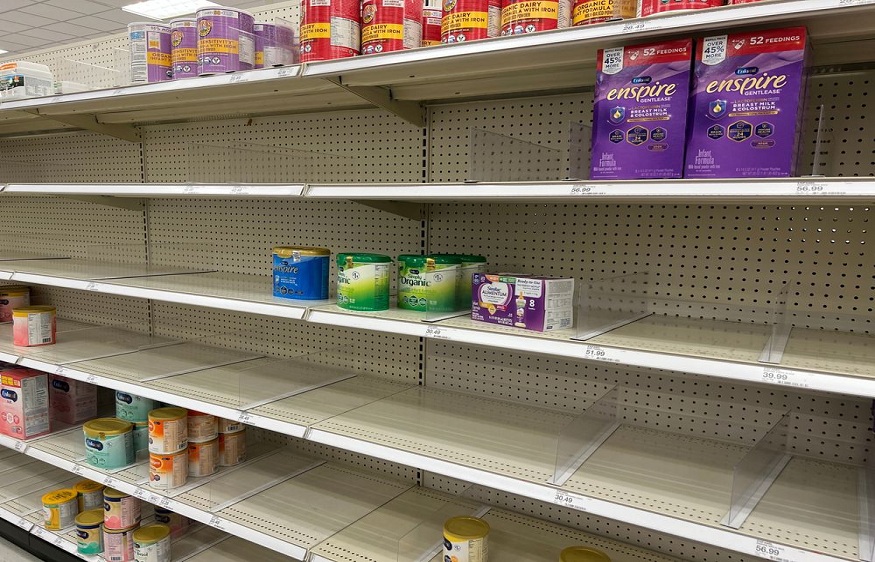
Formula Shortage Shines Light on Government Incompetence
As much as we like to think that government is capable of meeting our every need, we all know down in the deepest recesses of our hearts that governments at all levels are largely incompetent. The ongoing shortage of baby formula continues to shine a bright light on that incompetence. Unfortunately, though, very little has changed as a result.
Here in the U.S., government agencies thrive on bureaucracy. Regulators live to create bureaucratic red tape that takes too much time and requires too many resources to cut through. Get rid of the red tape and the bureaucrats who create it, and things move along much more quickly.
Formula and the FDA
So what’s behind the baby formula shortage? No one really knows for sure. We speculate that the COVID pandemic killed production. Once the pandemic eased, it took some time for producers to get back up to speed. But the pandemic’s peak was two years ago. Why do the problems persist?
The FDA claims that we no longer have enough production capability here in the U.S. Its solution was to turn to foreign actors to make up for our lack. That’s all well and good, but the FDA has consistently dragged its feet in everything from approving applications from foreign suppliers to creating some sort of consistent framework by which new compliance requirements can be implemented.
Letters of Enforcement Discretion
At the current time, the formula shortage is considered a national emergency. Under that designation, the FDA has discretion in terms of its enforcement of existing laws. In layperson’s terms, they can relax the rules if doing so helps increase the supply of baby formula.
Practically speaking, a foreign producer needs to go through a lengthy application process to prove that it can provide baby formula safely. Then the FDA needs to issue an enforcement discretion letter. Only then can the manufacturer start working on moving food-grade totes full of formula from its storage facility to distributors waiting to receive it.
Even the food-grade totes themselves are subject to regulation, according to the experts at Houston-based CedarStoneIndustry. Every minute detail needs to be scrutinized by bureaucrats at some level. And it all takes time.
Meanwhile, industry leaders say letters of enforcement discretion are not enough to get things moving. While the FDA drags its feet, getting formula, or the ingredients to make it, into the U.S. from foreign suppliers requires planning for logistics, production schedules, distribution, etc.
Their Hands Are Tied
The FDA seems to believe that relaxing the rules will solve the problem. It will not. Letters of enforcement discretion will eliminate the barrier strict enforcement previously placed on the industry, but it does little to eliminate the bureaucratic red tape companies still have to cut through.
U.S. companies are in a position of having their hands tied behind them. So what if the FDA relaxes its rules regarding food grade totes or ingredient sourcing? If it still takes the agency weeks to review and approve an application, that’s more wasted time for stateside companies just looking to produce and distribute formula.
Government Gets in the Way
The truth is that government gets in the way more often than not. Government agencies at multiple levels are bloated institutions that rely on operational policies so inefficient that the agencies would fail if they were private-sector endeavors. But because they are government agencies, they are not allowed to fail.
There is no reason for baby formula to still be in short supply. Government incompetence is getting in the way of producing what parents across the country need desperately.


